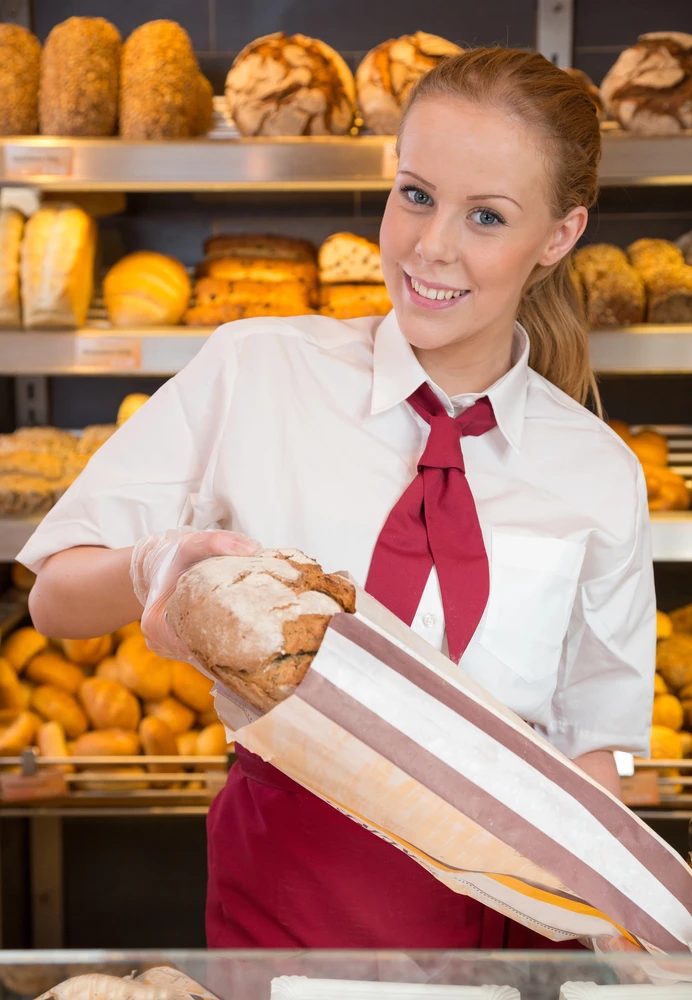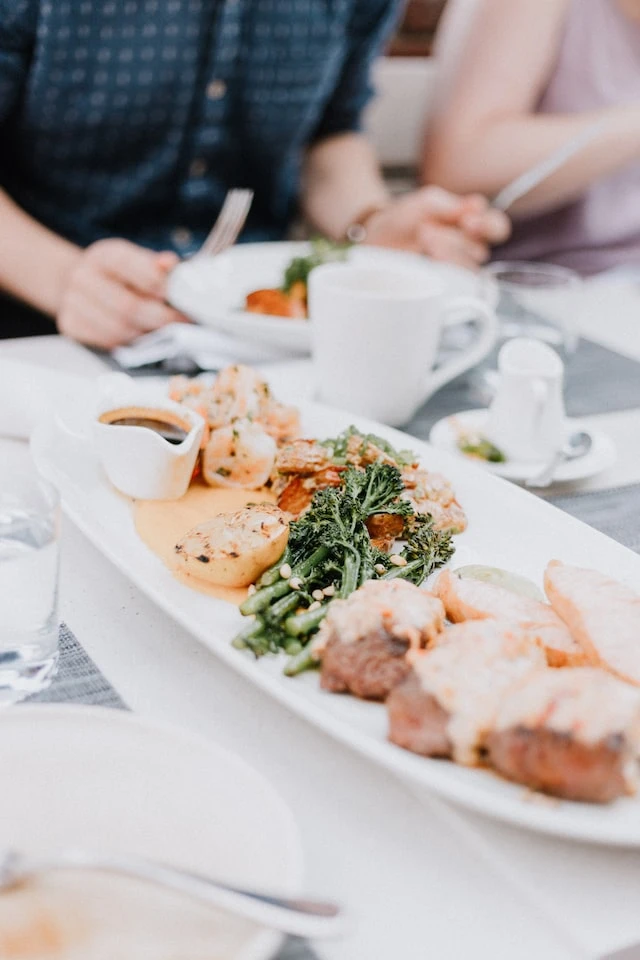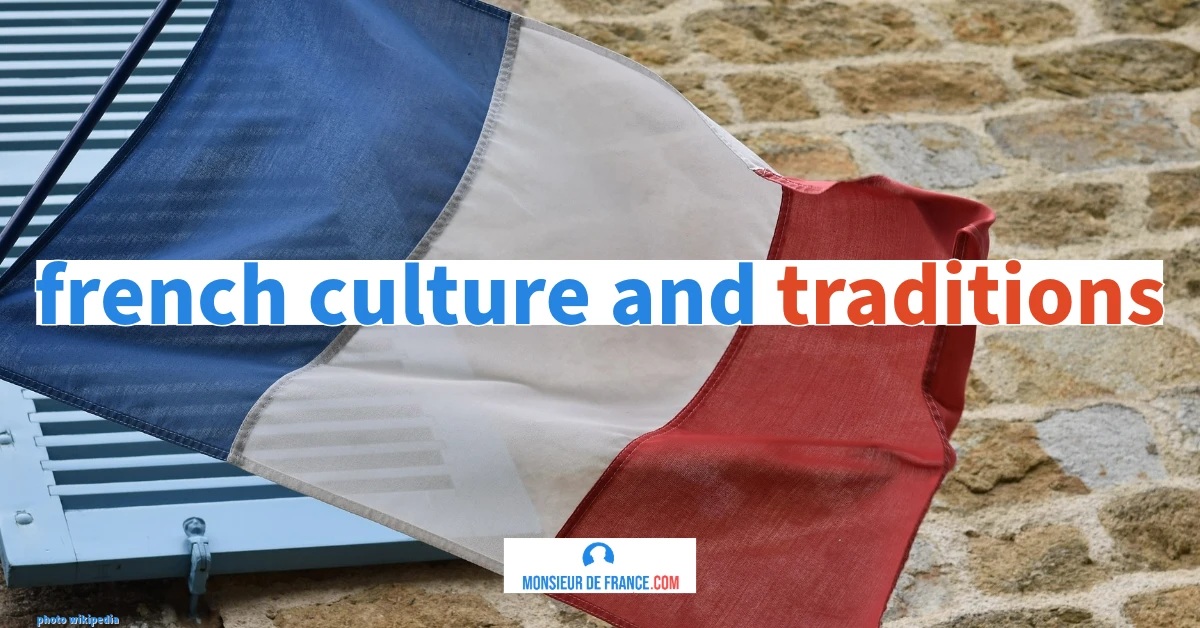1. The Golden Rule: "Vous" or "Tu"?
You don't say "tu" to someone you don't know. Next, you should always be on first-name terms with someone higher up in the hierarchy or an older person. Of course, the person can tell you to be on first-name terms and you will do as they ask.
Deep Dive: Want to master the nuances? Check out our dedicated guide: Tu vs. Vous: Mastering the French Language.
2. The Magic Word: Bonjour
We always say "bonjour" or "bonjour messieurs dames" when we enter a small shop. Photo chosen by monsieur de France: Ikonoklast via depositphotos
As a general rule, we greet when entering a public place where there are a few people: a shop, for example. We greet the person we're going to talk to before starting the conversation. We say "bonjour" in the morning and "bonsoir" in the evening (usually after 6 p.m.). It's always a good idea to add a "madame" or "monsieur" after "bonjour". It's more elegant and respectful. In the same way, we say "au revoir" (often pronounced "goodbye") when we leave a place or a person. We can also say "bonne journée" before noon or "bonne soirée" after 8 p.m.
3. Madame, Monsieur, and Titles
It's no longer customary to say "mademoiselle", but you can say "madame" or "monsieur". It's always a good idea to show off in front of an older or more senior person, if you're wearing a cap, for example.
4. "S'il vous plaît" and "Merci"
Of course, "please" and "thank you" are indispensable words and generously distributed. We add s'il vous plait to a request, for example in a shop: "une baguette s'il vous plaît". We never waste time adding "madame" or "monsieur", or the person's first or last name if you know them. The same goes for "merci", which we don't hesitate to say as soon as we've made you happy, done what you asked, or even what you didn't ask for, for example, by waving you through when it wasn't an obligation. When you've, yourself, made someone happy and they've said thank you, you should reply "je vous en prie".
5. The Handshake vs. The "Bise"

The rule is to shake hands. The kiss is when you knowt. Photo chosen by monsieurdefrance.com: opolja via depositphotos
When you don't know someone, you shake hands. the right hand in this case. If you do know someone, you can kiss them. The number of kisses varies from region to region. For example, in Normandy, we often give 4 kisses. When we introduce people to each other, we always introduce a man to a woman.
-
Handshake: This is the standard for business or when meeting someone for the first time. Use a firm, brief right-handed shake.
-
La Bise: This cheek-to-cheek kiss is for friends and family. The number of kisses varies by region (in Normandy, it’s often four!). As a visitor, wait for the French person to initiate this.
6. French "Galanterie" (Chivalry
Chivalry is still appreciated in France. Galanterie is a custom to show even more respect to women. For example, sitting after them, holding the door for them. When entering a public place, it's the other way around: the man goes in front of the woman to push open the door, because in the past it was considered that he was averting any glances that might have been directed at the woman accompanying him. On the stairs, too, the man goes first (obviously to avoid dirty looks). Some people continue the custom of inviting the gentleman to a date;
Chivalry is still considered a fine value in France. Attention respect for women is all the time! Not just in restaurants... Photo chosen by monsieurdefrance. ArturVerkhovetskiy via dépositphotos
In any case, generally speaking, when you invite someone, you do so discreetly when the waiter arrives with the bill, saying that you're inviting in front of the waiter. Normally, he should give you the bill and not announce the price, but this is rarely respected (and you always have to announce a price to the customer before charging him, so it's not easy not to do so even in this case). If you're inviting someone to dinner or lunch, even for business purposes, you can ask for a mute card in some restaurants. There are no prices on it, and the person doesn't feel obliged to take the cheapest;
7. Punctuality: The "Quarter-Hour" Rule
It's normal and even vital to arrive on time for a business appointment. You can be a little late for a personal appointment, but never more than a quarter of an hour.
8. Being a Great Houseguest
It's customary to arrive at a meal on time, or no more than 15 minutes after the appointed time. It's customary to bring something. This can be flowers (but if everyone does it, hello the number of vases to find for the one who welcomes you), wine (telling your host he'll drink it to your health) or chocolate. In older families, flowers are delivered the day after the meal, along with a thank-you card. We have to leave before your host tells you to, so it's up to you to judge when it's time to say goodbye.
At table we sit where we tell you to. Photo chosen by monsieurdefrance.com: Priscilla duprez unsplasch
9. French Table Manners
Don't sit down until you're told to or, in any case, never before the person who's hosting.Sit down where the person who's hosting you tells you to (unless they tell you that everyone does as they please). You can only make a reservation if someone suggests it to you. Ah, don't talk with your mouth full, don't wave your cutlery around and don't speak too loudly. Your host, on the other hand, has to make sure that everyone is at ease, to keep the more reserved ones talking, and to calm down the conversation if it gets a little heated.
10. The Art of Conversation
Conversing is a real French pleasure. You can talk about anything, but without raising your voice or interrupting the person speaking. If you're not intimate, it's best to avoid talking about politics. The same goes for raising children. We never talk about money;
💡 The 11th Commandment: Respect the Queue!
Contrary to appearances, it's popular to queue up and wait your turn / Photo chosen by monsieurdefrance.com: ArturVerkhovetskiy via depositphotos
It's true that we're not as rigorous as in Japan and there's always someone pretending not to understand where you have to queue, butnothing annoys more than someone who doesn't queue "like everyone else" and you expose yourself to a volley of green wood if you don't.
French politeness has a long history :
It was at the French Court that codes for better living began to be put in place, which were, in fact, codes of politeness. In the Middle Ages, it was forbidden to pick one's teeth with one's knife at the table. During the Renaissance, the court of the Valois established strict codes for the presence of the king. The 18th century was truly the century of politeness. No more wiping on the tablecloth. You don't laugh at the table. The 19th century adds a few codes afterwards.
FAQ: Navigating French Social Codes
Why do French people say "Bonjour" so often?
In France, "Bonjour" is more than a greeting; it’s a request for permission to speak. It acknowledges the other person’s humanity before a transaction begins. Skipping it is seen as treating the person like a machine.
Should I tip in French restaurants?
Tipping (le pourboire) is not mandatory because service is included in the bill. However, leaving €1 to €5 for good service at a café or restaurant is a very kind gesture of politeness.
Is it okay to use my phone at the table?
Generally, no. Keeping your phone on the table is seen as a sign that you are not fully present. To be polite, keep your phone in your pocket or bag during meals.
What should I do if I forget someone’s name?
Be honest! Say: "Excusez-moi, j'ai un trou de mémoire..." (I'm having a memory lapse). It is considered much more polite than avoiding their name all night.
Jérôme Prod'homme Specialist in French heritage, gastronomy, and tourism. Find all my discoveries on monsieur-de-france.com.










